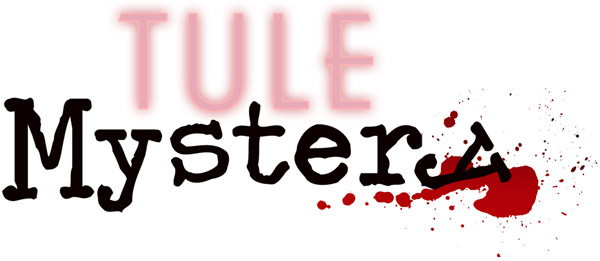Start reading this book:

Share This Excerpt
Chapter One
“You look like you’re having second thoughts,” I said.
Detective Padilla scanned the group sitting in my living room. Actually, she looked queasy, which could have to do with the amount of sugar in the peanut butter cup cupcake Joe had pressed on her, but was more likely a reaction to Arnold and Clarence “reporting for duty!”
I couldn’t blame her. I’d come to terms with my father’s meddling friends, but it was a process. Joe’s baked bribes helped, but not as much as the margaritas that were the specialty of his wife, Marty. Their treats might not help with my blood sugar levels—annoyingly, something I had to pay more attention to now that I’d hit fifty—but they did make it easier to go with the flow, or in the case of this group, the rushing torrent. Dad and his friends, the “Coffee Shop Irregulars,” embraced the mantra Seize The Day with an enthusiasm I hadn’t seen in thirty years as an international journalist. You might assume reporting on wars and natural disasters would be the dangerous part of my life, but moving back home to Arizona after a bomb tore up my leg hadn’t exactly resulted in a peaceful retirement. Arnold and Clarence gave a new meaning to “natural disaster.”
Still, they’d been loyal friends and had helped me investigate crimes, wanting nothing more than the knowledge that they’d done some good.
Ha, just kidding. They wanted excitement, adventure, and the adrenaline rush of danger. They might be in their seventies and eighties, but they were more likely to play strip poker than bridge and they’d only sit in the park feeding pigeons if it was part of a stakeout. Even then, they’d probably try to train the pigeons as evil minions, or at least questionably moral ones.
Detective Yaquelin Padilla knew more about the trouble we’d gotten into than most people. She’d shown herself willing to overlook our shenanigans, since we got results. But this time, she’d initiated the meeting. She must really be desperate.
People packed the room. Since I lived in the house with my father, I’d claimed one end of the couch before the crowd arrived. My sister, Jen, sat in her favorite easy chair with her notebook and pen at the ready. We were trying to start a private investigation business together, which was, unfortunately, a lot more challenging than merely hanging up our shingle—or in the modern era, putting up our website. We had to get training and licenses. Yuck. Well, not having those things hadn’t stopped us from solving multiple murders and breaking up a trafficking ring. Unfortunately, it meant we usually didn’t get paid.
Dad was moving around the room, filling coffee cups. Joe and Marty Washington, a couple who’d been friends with my parents for decades, sat next to me on the couch. Like the other men present, Joe was part of Dad’s weekly coffee group. Clarence, an eighty-year-old man with glasses perched on his large nose, was the oldest in years but not in maturity. He sat in the other easy chair. Arnold, Clarence’s partner in life, love, and shenanigans, perched on the armrest.
Mackenzie, the youngest person in the room by far at twenty-three, sat cross-legged on the floor. With her blond hair, blue eyes, and beauty, she looked like Hollywood’s idea of a high school cheerleader. In reality, she was a computer genius who occasionally helped us with some light hacking in between her high-paying and legal contract jobs. (I’m assuming the legal part. I’ve never asked.)
Clarence leaned toward the detective with his hands on his knees. “Come on, Chief, lay it on us!”
He usually called me Chief. I pondered briefly and decided I didn’t mind him changing his loyalty to Padilla. It meant I could blame her when things inevitably went wrong. I nodded to her. “Go ahead, Chief.”
She was too tough to whimper, but she did swallow and take a big breath before she began speaking. “I’m actually here on behalf of FBI Agent Sweet. He was impressed by your results at The Midnight Motel.” Padilla frowned, as if she couldn’t quite understand that. Hey, we’d uncovered human trafficking and solved multiple murders in the last year! We were impressive.
“Not, I might add, by your actions, which interfered with his operations.” She glared, but no one looked too concerned. If they wanted us to stop interfering, they should stop letting us get away with it. Granted, our interference at the motel might have contributed to two deaths and almost a third, but we’d solved the murders and a lot of very bad people were now in prison.
“Agent Sweet wants your help.” Padilla waited until the murmur of interest—or in Clarence’s case, the loud whoop of excitement—faded. “This is, in some ways, unofficial. That’s why he asked me to liaise.”
“Does unofficial mean we don’t get paid?” Jen always homed in on the most important issue.
“We’ll arrange it so you can get a reasonable payment, and the two of you can get some credit toward your PI license.” Padilla nodded at Jen and me.
Jen grinned. “We’ll take the job.”
“Maybe we should find out what it is first.” Yeah, we were going to take it no matter what, but I didn’t want to sound too eager. I was flattered but baffled by the FBI wanting our help. They had trained agents of their own. Hiring this group was like deciding to use a grenade to weed your yard.
“Let’s start with the basics,” Padilla said. “You’ll be on a train where a wedding is taking place. The bride and groom come from two organized crime families.”
Arnold sat up straighter. “Star-crossed lovers, like Romeo and Juliet?”
“Not really,” Padilla said. “More likely, the families approved the marriage and might even have arranged it to join the families. Like feudal lords contracting a marriage to form an alliance and expand their reach.”
Arnold sagged back. “Star-crossed is more romantic.”
“You said on a train?” Joe asked. “Organized crime families can’t find someplace fancier than Amtrak for a wedding?”
“It’s a scenic railway,” Padilla explained. “The train goes from Williams to the Grand Canyon. Normally, people buy individual tickets, but the railroad also allows groups to rent an entire train for special events.”
Clarence flashed a look up at Arnold. “That part actually sounds romantic.”
“Also hard to infiltrate,” Padilla said. “The guest list is tightly controlled. They’ll have security checking the train for unexpected passengers and scanning for spy cameras or recording devices. Once the train is moving, no one can sneak on it.”
I was starting to understand. “The FBI wants some undercover agents there. Why us?”
Padilla grimaced. “For one thing, the budget. The higher-ups don’t want to allocate enough people to do the job right. They don’t know for sure that anything is going to happen, except a wedding, so it’s hard to make a case for the staffing.”
“Why does Sweet think otherwise?” I asked.
“You know how suspicious we get.” Padilla had a wry smile. “One reason is that the wedding was planned very quickly. The railway got the request a month ago for the first available date, which is about a month from now. One family is coming down from Las Vegas. They could find plenty of places to get married there. It’s harder to completely secure a hotel, though.”
Jen glanced up from her notebook. “Planning a wedding in two months? Unless you elope, that’s almost impossible.”
Padilla shrugged. “They have money and power, which helps. But yeah, it’s odd. So maybe it’s cover for something else. Another reason for using your gang is that Sweet doesn’t want to risk the wrong people hearing about the plan.”
“Oh, like those corrupt police officers we found on the last job,” Clarence said.
Padilla’s jaw tightened, but she ignored the comment. “And finally, the families’ bodyguards will be looking for anyone who gives off a whiff of law enforcement. We need regular people. People who would never be suspected as undercover agents.”
Arnold crossed his arms. “I think I’m a little offended by that.”
“Everyone knows you could act like an undercover agent,” Clarence said. “You just have to act the opposite for this.”
“It makes sense,” I said. “Arnold, if they look up your history, they’re going to see a retired gynecologist who does community theater. You’ve never been involved in law enforcement.” He’d helped solve some crimes in the last year, but that was less law enforcement and more chaos detonation.
“Okay, I guess I can act innocent,” Arnold said.
Dad snorted. “It’s definitely an act.”
“Does the mob still operate in Las Vegas?” I asked. “And if so, isn’t crossing them extremely dangerous?”
“The Italian mob was run out of town in the eighties,” Padilla said. “Big corporations run the casinos these days. We’re looking at the Russian Mafia, and they mostly deal with things like identity theft and credit card fraud. Not that I’m claiming they wouldn’t commit murder under the right circumstances, but you should be safe enough if everyone follows the plan and doesn’t take any chances.”
“I don’t think any of us is fluent in Russian,” I noted.
“The bride and groom were both born in America,” Padilla said. “Their parents came over fairly young. Budimir Balakin was twelve. His first wife, the mother of his son, died in circumstances one might call suspicious, though he was never charged and I’m not making accusations. He then married an American without Russian roots, though they’re divorced. Valentin Popov immigrated at twenty-four. It’s possible you’ll hear a lot of English on the train, but don’t worry either way. We’re not expecting you to listen in on conversations.”
“Good,” I said, “because I can’t imagine they’ll be having important conversations in front of us in English, and probably not even in Russian.”
“You never know,” Padilla told me. “You seem to have a knack for stumbling on things that others might miss. Use your instincts or follow your gut if you sense something wrong.”
Yeah, that always went well. And stumbling on was a bit harsh. She might have said seeing things others might miss or digging out the truth.
But yeah, we did get lucky sometimes. Or maybe unlucky, given the number of times someone had tried to kill one of us.
“All right.” Padilla glanced at some papers. “The train supplies passenger service attendants on each car. Most of them are men who retired from other jobs. I think Arnold, Clarence, Joe, and Isaac will blend right in. You’ll need to get some training first, but because of the wedding, the passengers won’t expect the full spiel. Mainly, you’ll be available to answer questions, maybe tell a joke or two for authenticity.”
Dad and Joe looked pleased. Clarence and Arnold exchanged a high five.
“What about the rest of us?” Jen asked.
“We’ll use Kate’s journalism experience,” Padilla said. “We’ll get the paper to request access to cover the wedding, which will flatter the families. We think they’ll accept a reporter and photographer, if the paper insists on sending their own. Kate’s involvement in some criminal cases has been publicized, but the editor will play up her background as a celebrated international correspondent to offset that.”
Celebrated might be pushing it. Nobody threw me a party for interviewing warlords or surviving a bombing. But I had a reputation in the industry, even if it didn’t quite extend to name recognition amongst the general public. And in Arizona, I was even a little bit famous as a hometown girl whose name had appeared in tiny print under article headlines. It was nice that I wouldn’t have to pretend to be someone else and risk getting exposed.
“And I’ll be the photographer.” Jen had pretended to be a photographer once before. She didn’t actually take any photos on that case, but she did whack someone with her tripod.
“Actually, I’d like Mackenzie to take that role,” Padilla said. “We might need her tech skills. We’ll try to place some recording devices on the train, but they can’t be turned on until after they sweep for bugs. We’ll also give you a bunch of recording devices the size of coins. To get them onto the train, they will be hidden inside the camera mechanism. They’ll have to be removed from the camera and turned on once you’re on the train. We’ll teach you how to do that. Your group will distribute them throughout the train cars as early as possible. We know their security will be searching passengers for recording devices, but they might overlook any hidden in the camera equipment.”
“The camera itself is a recording device,” Mackenzie noted.
“Yes, but they’ll probably keep a close eye on the photographer and demand to see all the digital photos,” Padilla explained. “We don’t really care about the wedding itself. We need to know if anyone is using the wedding to cover business meetings.”
“Dirty business!” Clarence whooped.
Padilla gave him a quelling look that completely failed to quell.
“But what about me?” Jen pouted. I had to admit I’d gotten used to having her by my side during our investigations. It made it easier to duck behind her when accusations started flying.
“You and Marty can cover the café car,” Padilla said. “Caterers will supply the food, but the railway company is insisting on having their own workers serving drinks from the café car, so we can get you in there. We’ll make that the command station, since everyone has an excuse to go there.”
Jen flashed me a grin. “Hear that? I’m in command.”
“Hey, I’ll be there too,” Marty said, “and I have seniority. Let me serve drinks and I guarantee people will be spilling their guts.” She winced. “Maybe that’s not the phrase I want when it comes to alcohol and a moving vehicle. No gut spills. They’ll be loose-lipped.”
“They’ll be spilling the tea,” Jen said. “That’s metaphorical tea, for those of you who aren’t up-to-date.”
“Look at you with your fancy slang,” Marty retorted.
Jen looked modest. “I have teenagers.”
“Groovy!” Clarence made jazz hands.
Mackenzie focused on the detective. “Actually, my tech skills might be better in the café car, where I’m not under constant surveillance. I’ll be able to make sure the devices are working and handle any repairs. If Jen takes the photo role, she can drop off the spy equipment with me and go back to distracting the guards.”
“I guess that makes sense,” Padilla said.
Jen slumped back in her chair and crossed her arms. “Now you’ve made the café car sound fun.”
Voices rose, and Detective Padilla massaged one temple.
“I can’t believe you’re doing this,” I told her.
“I can’t either,” she muttered. Then she straightened her shoulders and firmed her mouth. “But we need people who are completely undercover. Who have real IDs and no law enforcement history. Who are friendly and natural with strangers. Who are clever and cool under pressure.”
“Sounds just like us,” Clarence said, and Arnold cackled.
The detective winced. “I must also make it clear that you are not law enforcement, and only Kate and Jen are officially working on behalf of law enforcement. We can’t risk giving you a wire. You’ll be out of cell phone range sometimes, even if you had phones, which you won’t get past the guards. You’ll be on your own.”
If she thought that would subdue this crowd, she was disappointed. They acted like a bunch of ten-year-olds about to go on a field trip to a candy factory. I let the gang chatter for a minute.
“So to summarize . . .” I began at a shout to get everyone’s attention. I’d had plenty of practice with that particular skill lately. I lowered my voice as the babble faded. “We’ll have four men working individual train cars: Dad, Joe, Arnold, and Clarence. Marty and Mackenzie will be in the café car. Jen and I should be able to move around the train in our role as photographer and journalist. Who else will be on the train besides the wedding group?”
“The engine will have an engineer and conductor, or whatever trains need,” Padilla said. “They’ll be actual railroad workers, obviously, and busy with their jobs. This railway has several classes of cars. The cheap class, with bench seats, won’t be used at all. Light snacks will be available in what they call a luxury parlor café lounge car. It has the bartender station where Marty and Mac will be, and fancy chairs locked in place around tiny tables. The bride and groom will each have a luxury parlor with big, padded chairs where they can get ready, along with their half of the wedding party or their family. Those cars have two floors—the upper levels are called the observation decks—so the bride and groom can dress in private. The wedding guests will be in a couple of first-class cars which also have observation decks. When the wedding starts, everyone will move to one car that has bench seats in rows.”
“It all sounds fairly cramped,” Marty said. “I know destination weddings are a thing, but a train?”
Padilla nodded. “That’s one reason we think they must be doing something other than getting married.”
Clarence and Arnold each clasped their hands together and widened their eyes into innocence, like two elderly angels.
I decided not to comment on the likelihood of everyone following orders. “But you won’t have any police or FBI agents on the train at all?” I asked.
Padilla’s face tensed so subtly that it almost didn’t happen. “No.” So if they were planning it, they weren’t going to tell us.
“Oh, come on!” Arnold held his finger and thumb an inch apart. “Not even one itty bitty one?”
“Or better yet, a big muscular one?” Clarence bobbed his eyebrows.
Padilla sighed. Or maybe it was more of a hiss. “Okay, we are actually going to try to insert a couple of people, but we’re making them obvious. Well, not too obvious, but enough that security will probably spot them and kick them off.”
“Ah!” Arnold pointed his index finger upward. “I smell a red herring!”
“Sorry, that was me.” Clarance wriggled in his seat.
Padilla closed her eyes.
“Hey, you asked for this,” I said.
She groaned. “I know. And I expected I’d regret it.”
I smiled brightly. “At least we’re not disappointing you.” I had a lot of questions, like who our targets were, what we were expected to learn, how dangerous this was going to be, and how much we were going to get paid. But those were merely details. “Okay, gang, you heard the woman! We’re going to ride the rails.”
Clarence pumped his arm as if pulling a rope for a whistle. “All aboard!”
End of Excerpt










